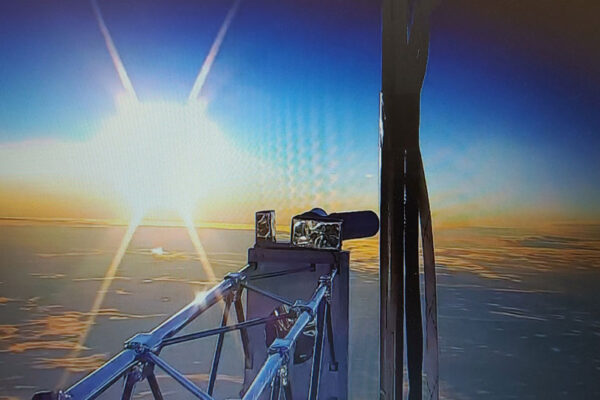
The Division for Planetary Sciences of the American Astronomical Society (AAS) has named William B. McKinnon, a professor of earth, environmental and planetary sciences in Arts & Sciences at Washington University in St. Louis, the winner of its 2023 Kuiper Prize for outstanding contributions to planetary science.
McKinnon, also a faculty fellow of the McDonnell Center for the Space Sciences and a member of the National Academy of Sciences, was recognized for proposing a series of novel and important ideas which, having been confirmed, profoundly changed the view of geophysical processes in the solar system.
The AAS commended McKinnon for developing these ideas:
- The leading theory of multi-ringed basin formation, the ring-tectonic model, which was spectacularly verified by the Grail mission’s gravity observations of the lunar Orientale basin;
- That the arcuate tectonic structures within Galileo Regio on Ganymede form a ring system similar to (but larger than) the Valhalla system on Callisto;
- That an impact on Pluto formed its moon Charon;
- That Cassini gravity data, interpreted by others to imply either a regional subsurface sea or global ocean on Enceladus, requires the latter; and
- That the physical properties of Arrokoth, visited by New Horizons, implies formation by gravitational collapse rather than hierarchical accretion, thereby confirming a key prediction of pebble accretion.
McKinnon also has constructed the most comprehensive and physically rigorous models of the interiors of Pluto and Triton and showed how Pluto’s Sputnik Planum could be formed by convective overturn in nitrogen-rich ice, the AAS noted.
The Kuiper Prize also honors McKinnon for his leadership and service to the planetary science community. McKinnon is or has served as a past chair of the Division for Planetary Sciences; president of the planetary sciences section of the American Geophysical Union; a member of the steering committee for the most recent Decadal Survey in Planetary Science and Astrobiology; a past chair of the Outer Planets Assessment Group; a past chair of the National Academy Committee on Astrobiology and Planetary Sciences; and a member of numerous mission teams, including the New Horizons mission team, RIME Radar for JUICE and MASPEX, Reason Radar and Gravity Science for the Europa Clipper mission.
The Kuiper Prize will be presented at the 55th annual meeting of the Division for Planetary Sciences, which will take place in San Antonio Oct. 1-6.
Read more on the AAS website.


